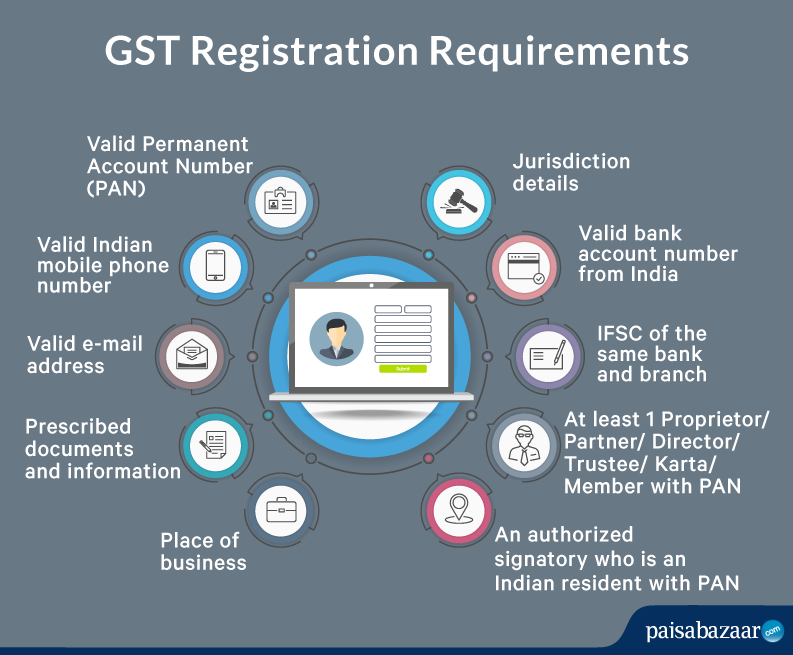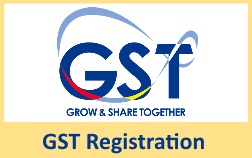Enhancing Your Singapore GST Registration: A Thorough Approach
Enhancing Your Singapore GST Registration: A Thorough Approach
Blog Article
The Ultimate Guide to Streamlining the GST Enrollment Refine and Requirements for Small Company Owners

Recognizing GST Basics
To grasp the fundamentals of the Goods and Solutions Tax (GST) system, local business proprietors must first comprehend its underlying effects and concepts. GST is a value-added tax imposed on the majority of products and services for domestic consumption. It intends to enhance the taxation procedure by changing multiple indirect taxes imposed by the state and central federal governments. Under the GST regimen, businesses are called for to sign up and gather tax in behalf of the government, guaranteeing openness and compliance.
Among the crucial principles of GST is input tax obligation credit score, which permits companies to assert credit report for tax obligations paid on their acquisitions. This system stops the cascading result of tax obligations and advertises efficiency in the tax obligation system. In addition, GST is a destination-based tax obligation, suggesting that the tax obligation is imposed at the point of usage as opposed to the point of beginning. This makes sure fair circulation of tax profits among states based upon where the services or goods are taken in. Comprehending these fundamental concepts is critical for local business owners to navigate the complexities of the GST system and guarantee conformity with the regulation.
Eligibility Criteria for Enrollment
Having actually developed a foundational understanding of GST principles, little service proprietors should currently meet details eligibility standards to proceed with the enrollment procedure. In India, entities engaged in the supply of products or services with an annual accumulation turn over going beyond Rs. 40 lakhs (Rs. 10 lakhs for unique category states) are called for to register for GST. Furthermore, particular organizations such as those associated with inter-state supply of items, casual taxed persons, and those needed to pay tax obligation under the reverse charge mechanism need to sign up for GST irrespective of their turnover. Companies that were signed up under the previous tax program (BARREL, service tax, etc) are also mandated to sign up under GST. However, agricultural organizations that just supply generate out of main manufacturing are excluded from GST enrollment. It is crucial for entrepreneur to very carefully analyze their eligibility based on these requirements to make certain conformity with the legislation and avoid any kind of penalties for non-compliance.
Documents Required for GST Registration

Simplified Enrollment Process Steps
Adhering to the collection and confirmation of the requisite documents, the enrollment process for GST can be browsed via a collection of streamlined actions made to promote reliable compliance for local business proprietors. The initial action entails checking out the GST site and selecting the 'New Registration' choice. Consequently, the applicant should fill out Part A of the GST REG-01 kind with information such as PAN, mobile number, and e-mail address to obtain an OTP for confirmation. When the OTP is received and gone into, a Temporary Recommendation Number (TRN) is created for further process. The following step requires completing Component B of the kind with essential service details, publishing sustaining records, and completing the verification procedure using DSC or EVC. Lastly, upon successful verification, an Application Recommendation Number (ARN) is issued, suggesting the completion of the GST enrollment process. By complying with these simplified steps, small company proprietors can effectively register for GST and make certain conformity with tax regulations.
Tips for Ensuring Compliance
To keep regulatory adherence and operational stability, persistent oversight and positive actions are crucial in guaranteeing conformity with GST requirements for small company proprietors. Tiny organization owners have to remain upgraded with GST policies, submitting target dates, and any modifications in tax prices to avoid fines and maintain a great standing with tax obligation authorities. One crucial suggestion for compliance is to keep comprehensive and accurate records of all deals, including expenses, invoices, and invoices connected to GST. Frequently resolving financial records with GST returns can assist in determining and fixing any inconsistencies quickly. Furthermore, performing regular inner audits or seeking professional assistance can make sure that business is following all GST guidelines appropriately. It is also crucial for small company owners to invest in GST-compliant accounting software program that can simplify the tax official website obligation filing procedure and lessen mistakes. Finally, going to GST awareness workshops or training programs can improve understanding and compliance with GST regulations, eventually profiting business in the long run.
Conclusion
Finally, local business owners need to recognize the essentials of GST, fulfill the qualification criteria, collect necessary documents, and comply with the streamlined registration process actions to ensure compliance. By streamlining the GST registration procedure and demands, small company proprietors can stay clear of fines and run their organizations smoothly within the legal framework - Singapore GST Registration. It is essential for small company proprietors to stay certified and enlightened with GST regulations to preserve an effective organization procedure
Small organization proprietors seeking GST enrollment need to ensure they collect and send the necessary documents to finish the enrollment procedure successfully. The papers required for GST enrollment commonly include evidence of company enrollment or unification, FRYING PAN (Permanent Account Number) card of the business address, entity and identity proof of the promoters/partners/directors, pictures, address evidence of the area of service, bank account declarations or terminated cheques, and authorization types. Attending GST awareness workshops or training programs can improve understanding and conformity with GST regulations, ultimately profiting the organization in the long run.
By streamlining the GST registration process and requirements, little organization proprietors can avoid penalties and operate their companies efficiently within the legal structure. It is important for small business owners to remain informed and certified with GST policies to keep a successful business procedure.
Report this page